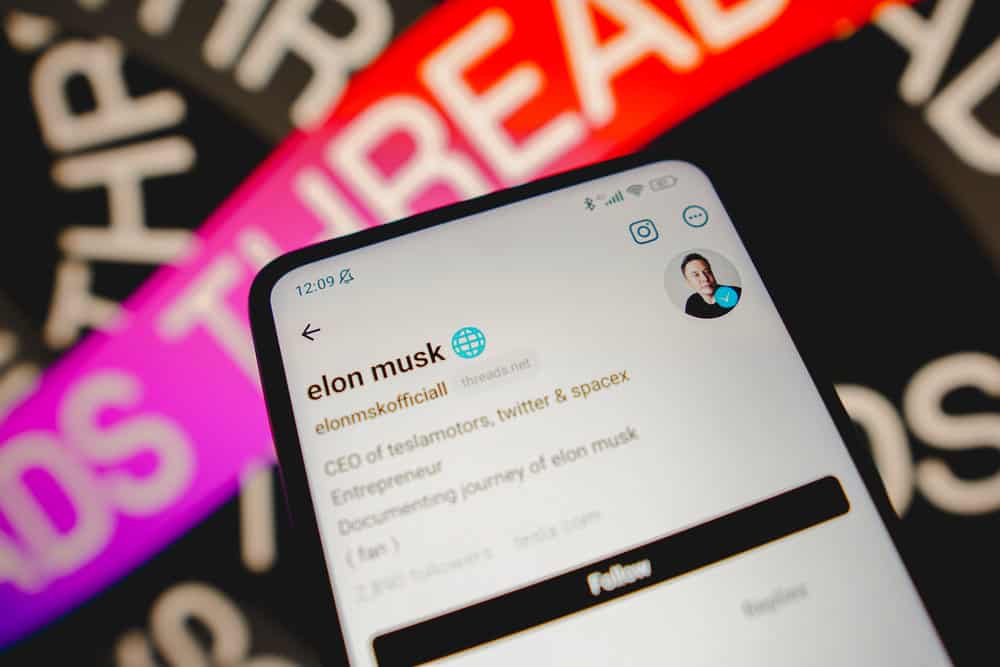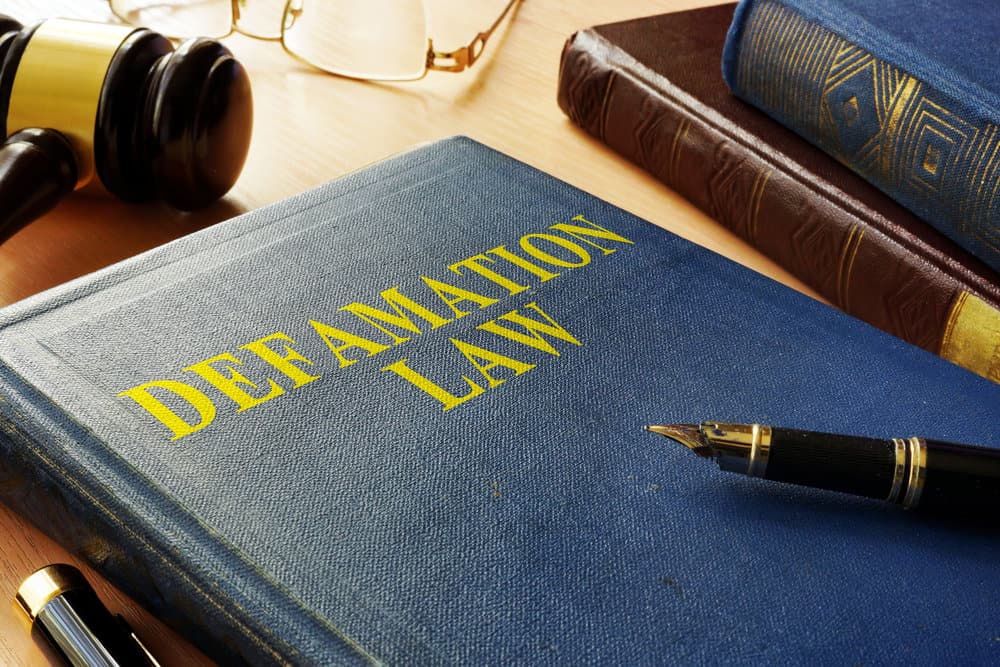Defamatory statements on social media have increased considerably compared to those typically involving the printed press. Social platforms often remove inappropriate elements like pornographic or legal issues. Still, defamatory content is not as regulated, making it easier for online users to view, like, or share information.
Online defamation follows defamation law closely, meaning that if a false statement gets seen by even one person other than the creator and subject of the statement, the person has reasonable grounds for submitting a defamation lawsuit. However, the Supreme Court has made it more difficult for those in public positions to claim defamation of character in support of the First Amendment right to freedom of speech. In such cases, even if the public figure can prove the comment was false, they must still prove the person acted with definite or actual malice to harm them or disregarded the truth.
What is Social Media Defamation?
There are two types of defamation: slander when spoken and libel when written. In the statement made on any social media, whether expressed or written, the person must refer to the claimant, the claim must harm the claimant’s reputation, and it must be false. Besides having the potential to reach a broad audience of people rapidly, social media defamatory comments can also cause financial losses and mental anguish.
Usually, the author of the defamatory comment is liable, but in some cases, internet service providers or employers can be held responsible.
Types of Social Media Defamation
Social media consists of several platforms where people can post content, comments, photographs, and even videos. These include Facebook, Twitter, Instagram, YouTube, TikTok, LinkedIn, and Pinterest.
The most common ways people use to defame others on social media include:
- Posts published on individual Facebook profiles
- Posts published in Facebook groups
- Tweets published on individual Twitter profiles
- Fake reviews on business pages on Facebook
- Comments on posts, videos, or tweets
- Videos on TikTok
- Photos or captions on Instagram
- YouTube videos
Common Examples of Social Media Defamation in U.S. Courtrooms
Opinions, modified photos, and statements of fact all constitute online defamation. Here are some examples of social media defamation in U.S. courtrooms:
Musk Wins Twitter Defamation Case
Elon Musk is an avid tweeter, so much so that he now owns Twitter, which plans to enhance its features and promote free speech.
The outspoken business magnate landed in hot water a few years ago in a tweet about Mr. Unsworth, a British cave explorer. Unsworth helped rescue a team of young soccer players in a Thailand cave, and Musk called him a “pedo guy.”
Musk defended his defamation case in court and won, surprising some defamation attorneys. However, the ruling proved that judges and juries have difficulty discerning between statements of fact and protected opinions.
One defamation lawyer, Chip Babcock, told Reuters in 2019: “I think this verdict reflects the feeling that internet tweets and chats are more like casual conversations which some may call opinion, rhetoric or hyperbole and must not be punished in a lawsuit.”
Lin Wood, Unsworth’s attorney, said the verdict proves that social media is helping the trend of dismantling social order.
Cardi B Wins Her Defamation Case Against You Tuber
Rapper and Grammy Award-winning artist Cardi B walked away with a $4 million award that also covered her legal fees of $1.3 million in her defamatory lawsuit against Tasha K. and Kebe Studios LLC. Cardi B (Belcalis Almanzar) sued for slander and invasion of privacy for several false claims against her in several videos, including drug use, prostitution, her sexual health, and her mothering abilities.
The YouTuber, whose real name is Latasha Kebe, tried to present some proof in court, but these didn’t hold up. She also admitted that she knew that some of the content and rumors she spread were untrue. She also acknowledged that she is not a journalist, even though she refers to herself as such on her channel. She aims to attract likes and comments to help her go viral with her content. In an emotional testimony, Cardi B described her mental state caused by the videos and her thoughts of suicide.
At the end of the costly three-year lawsuit, the jury decided that the YouTuber was liable for slander, invasion of privacy, and intentionally causing the rapper emotional distress. In its report on the trial, NBC News determines that victory means more than just the money received by the star. It provides hope that it’s a warning against those wanting to harass others online.
Hans Niemann Defamation Lawsuit
A 19-year-old chess grandmaster, Hans Niemann, defeated Magnus Carlsen, the world’s best chess player, in a 2022 tournament with a $350,000 prize, leading to Carlsen’s abrupt withdrawal. A few weeks later, Carlsen responded in a tweet accusing Niemann of cheating. However, he didn’t offer any proof.
Another top chess player, Hikaru Nakamura, amplified the accusations on his Twitch Channel. When Nieman filed his $100 million defamation lawsuit, he did so against Carlsen, Chess.com, and Nakamura. Chess.com’s chief chess officer was accused of making defamatory press releases on the website. The young chess master says the defamatory actions destroyed his career and ruined his life. Carlsen’s legal team asked for the dismissal of the lawsuit, saying that his comments were protected by privilege and that he was not stating facts but his opinions.
In the meantime, even though Niemann was never caught cheating, he had admitted to cheating twice in matches on Chess.com when he was younger. A Missouri court dismissed the lawsuit for libel and slander without prejudice, allowing Niemann to refile another case for the accusations. He hasn’t commented on whether he will.
Examples of Social Media Defamation in the News
The rise of social media has led to an increase in the number of defamation cases involving posts, comments, photographs and videos on popular platforms. People often use these mediums to defame others, resulting in financial losses and mental anguish. In the U.S., some high-profile examples have made their way into courtrooms over the past few years, with mixed results for those involved. Examples include Elon Musk’s Twitter defamation case against Mr Unsworth and Cardi B’s lawsuit against a YouTuber for false statements about her personal life and mothering abilities. Another example is Hans Niemann’s $100 million lawsuit against Magnus Carlsen over claims of cheating during a chess tournament which was dismissed without prejudice by a Missouri court.
Lessons Learned From Examples of Social Media Defamation Cases
The examples discussed in this article demonstrate the consequences of making false allegations against individuals or organizations on social media. They also reveal that judges and juries have difficulty determining between statements of fact and protected opinions, as evidenced in Elon Musk’s case. Additionally, they highlight the importance of verifying information before publishing it on a website or social network to avoid costly legal battles. Finally, these cases illustrate how damaging online defamation can be for the reputation of those involved, which is why anyone accused should take legal action quickly to protect their rights.
Helpful Tips to Stay Clear of Social Media Defamation
Social media platforms have become a breeding ground for defamation cases. To protect yourself from becoming a part of such a case, here are a few tips to consider:
- Exercise Caution: Always exercise caution when posting or commenting on social media. Remember that your posts and comments are public and can be used against you in court.
- Think Before You Post: The internet has a long memory, and once a statement is published, it can be difficult, if not impossible, to fully retract or remove.
- Respect Privacy: Respect others’ privacy when posting or commenting on social media. Do not disclose private information about others without their consent.
- Understand the Law: It’s crucial to understand the basic tenets of defamation law. Enhancing your understanding of what constitutes defamation could prevent potential legal issues down the line.
- Refrain from Sharing Unverified Information: If you come across information damaging to another person or company, verify it before sharing. Sharing unverified damaging information can lead to a defamation lawsuit.
Remember, being informed and mindful of your social media interactions can go a long way in preventing potential defamation scenarios.
Final Take
As you can see from these prominent social media defamation cases, they often have mixed results. The reason is that it depends on whether the court can consider them factual statements or protected opinions. Fighting social media defamation is difficult but necessary, and an attorney is the best person to go to for advice. The reason is that they must gather essential information before filing a defamation lawsuit. It’s also vital to meet the statute of limitations (the time required by law).





